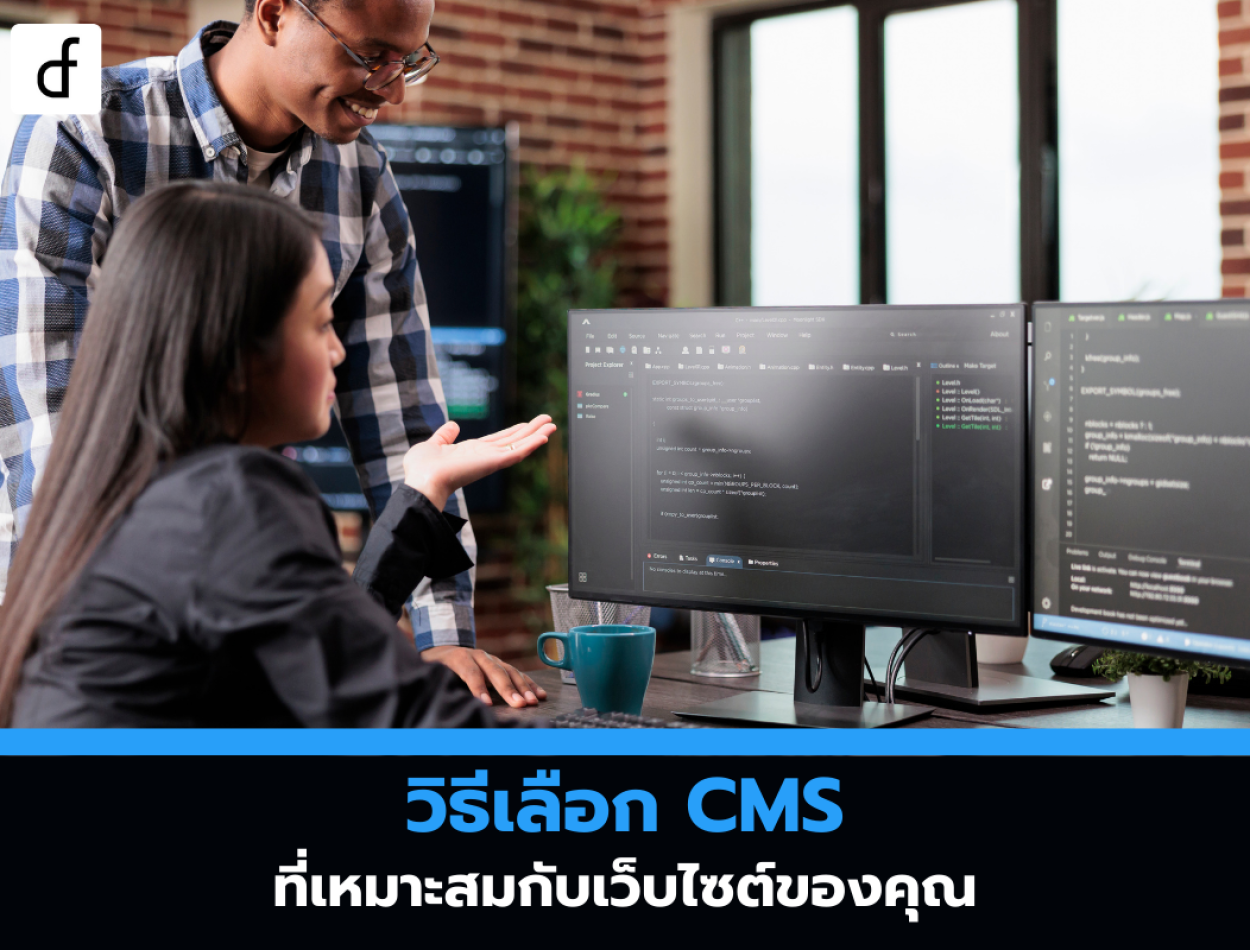
How to choose the right CMS for your website
2024-10-18 01:25:35
Choosing the right CMS (Content Management System) for your website is a crucial step that affects the performance, usability, and long-term success of the site. Since each CMS has its strengths and weaknesses, selecting one that aligns with your business needs or the content you want to present will help ensure smooth website management. Here are some ways to choose the right CMS for your website.

Specify the website's requirements.
First, you need to specify what features your website requires.
- Type of website: personal blog, online store, business website, or website for large organizations
- Content and functionality: What type of content will your website have, such as images, videos, articles, or online products? And what features do you need, such as a product management system, forum, or booking system?
- Customization needs: Do you need a lot of control and customization for the website? Or should the website be simple and ready to use immediately?
- Budget: How much is your budget for using the CMS and various fees?
Evaluate the ease of use.
Ease of use is an important factor, especially if you don't have much experience in website creation. An easy-to-use CMS will help reduce the learning time and allow you to create a website quickly.
- WordPress: User-friendly, with easy-to-use plugins and themes, while still offering flexibility for customization.
- Wix: Suitable for those who are starting with a Drag-and-Drop system and do not want to write code.
- Webflow: Suitable for those with design experience, because even though coding is not required, it has more complex features.
Consider flexibility and customization.
If you want to customize the website to match your brand's identity and have special functions such as an online store system, booking system, or membership system, some CMSs may offer more customization options than others.
- WordPress: Highly flexible, with a wide range of plugins available, and customizable code as needed.
- Joomla!: It has customization capabilities and supports multiple languages, suitable for websites with complex structures.
- Shopify: Focuses on the convenience of creating online stores, but the flexibility in customizing the website may have limitations.
Check support and community
Having a strong support system and user community will help you solve problems and develop your website more easily.
- WordPress: It has a large community and excellent support, with many forums, online communities, and tutorials.
- Shopify: Has a strong customer support team and detailed user manuals.
- Wix: Provides customer support through live chat and email, along with articles and usage guides.
Consider safety and maintenance.
Security is important, especially for business websites and online stores. CMS should have good security measures, as well as easy website maintenance.
- WordPress: Even though there are good security plugins, due to their popularity, it is frequently attacked, so it is necessary to closely monitor security.
- Shopify: It has comprehensive built-in security, including customer data protection.
- Wix: It has built-in security and automatic updates, making maintenance easy.
Supports SEO and marketing
If you want your website to have a chance to appear in Google search results and other search engines, supporting SEO and marketing is essential.
- WordPress: Supports effective SEO with plugins like Yoast SEO
- Shopify: Supports SEO for online stores and has built-in marketing tools.
- Webflow: It has built-in SEO tools that allow for customization of URLs, Meta Tags, and website structure.
Check compatibility with mobile devices.
Currently, using websites through mobile devices is something to consider. The chosen CMS should support Responsive Design to ensure the website can adapt appropriately to all screen sizes.
- WordPress: Most templates support display on mobile devices.
- Wix: There are customizable templates for mobile, but some templates may need manual adjustments.
- Webflow: Fully supports responsive web design

Choosing the right CMS for your website depends on your specific needs, whether it's customization flexibility, support, SEO features, or security systems. Carefully considering these factors will help you select a CMS that meets your website development requirements and supports the growth of your business in the future.
Leave a comment :
Recent post

2025-01-10 10:12:01

2024-05-31 03:06:49

2024-05-28 03:09:25
Tagscloud
Other interesting articles
There are many other interesting articles, try selecting them from below.

2025-01-10 04:00:42

2024-05-22 11:08:26

2025-05-29 07:13:14

2023-11-22 11:13:33

2023-11-21 01:12:50

2023-12-12 04:45:33

2024-01-19 05:01:12

2024-05-31 02:12:00

